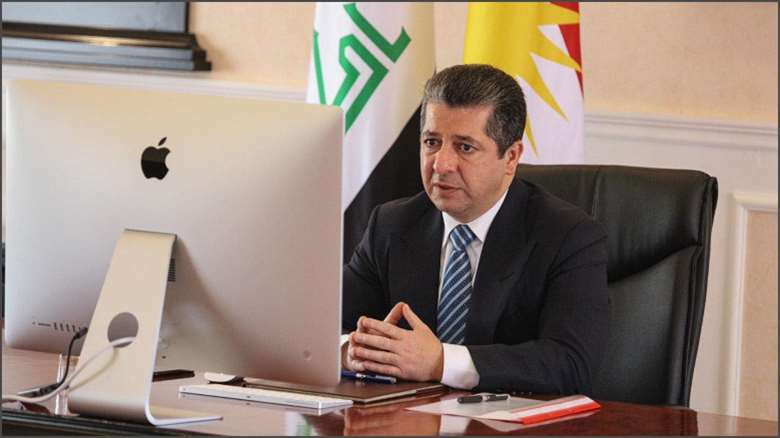Kurdistan Regional Government to organize customs, tariffs, and eliminate exemptions
On Monday, the Kurdistan Regional Government (KRG) decided to organize the Region’s border crossings and customs according to international standards and remove all illegal customs tax exemptions.

ERBIL (Kurdistan 24) – On Monday, the Kurdistan Regional Government (KRG) decided to organize the Region’s border crossings and customs according to international standards and remove all illegal customs tax exemptions.
The decision was made during a meeting held by video conference of the committees formed to reorganize the work of customs, customs exemptions, and border crossings. It was chaired by Masrour Barzani, Prime Minister of the KRG.
The committees’ objective is to complete the reform process regarding revenues, while reorganizing and regularizing sources of income.
"The meeting, in which Deputy Prime Minister Qubad Talabani and a number of relevant ministers participated, discussed the findings of the special committees formed to reorganize the work of customs, border crossings and customs exemptions, as part of the government’s reform package in managing public revenue," a statement on the KRG website read.
During the meeting, the ministers of interior, finance and economy, who oversee these committees, presented reports that included all the details, laws, instructions, and the service contracts, following field visits to the relevant areas. They discussed the obstacles and challenges to the reform process, while they also presented a set of recommendations to tackle them.
Prime Minister Barzani emphasized "the importance of both projects" and reaffirmed that "reform and regulation of public revenue are among the tasks of the ninth cabinet," as he noted that "issues related to customs and border crossing points are an important part of the reform process that aims to regulate revenue."
In the meeting, the KRG reaffirmed its support for the private sector. That includes protecting local products in a way that contributes to developing the region's economy and providing job opportunities for its citizens.
It was also decided "to organize the work of all border crossings and customs points according to international laws and standards and to eliminate all illegal customs exemptions,” the KRG statement explained.
Regarding service contracts at the border-crossings, it was decided that “the private sector will manage them, while it is necessary to announce the outcome of those projects as soon as possible and to audit and review them in a manner consistent with the public interest.”
Such reforms are part of the framework of the ninth KRG cabinet and its plans to diversify sources of income, regulate non-oil imports, and reorganize border-crossing procedures to conform with international practices and to best serve the public interest.
Editing by Laurie Mylroie